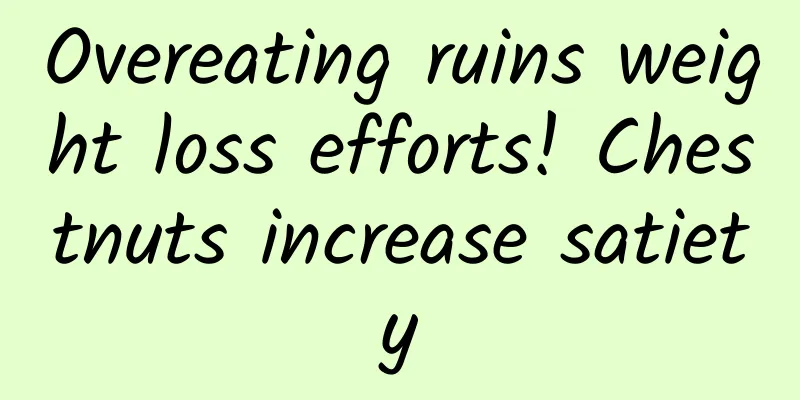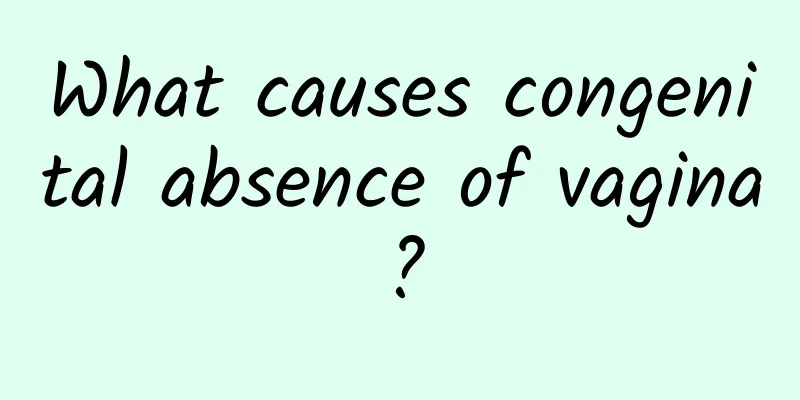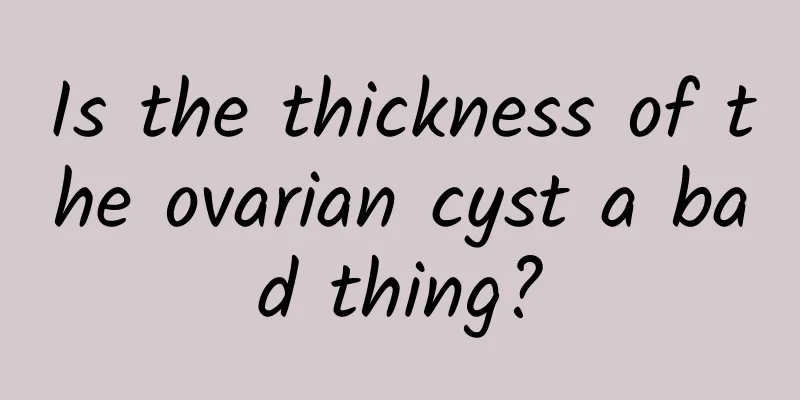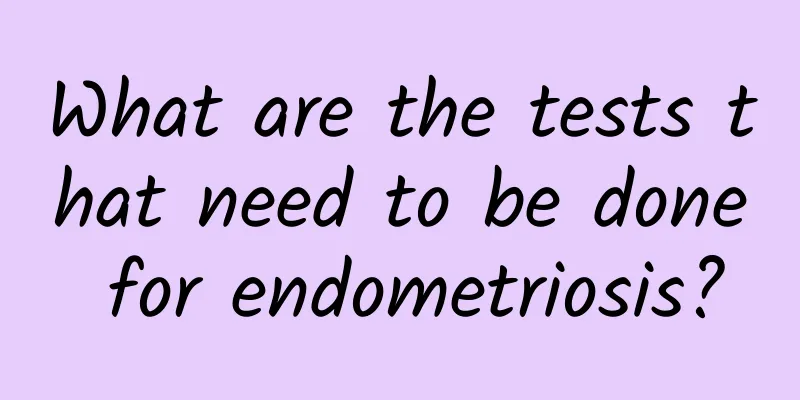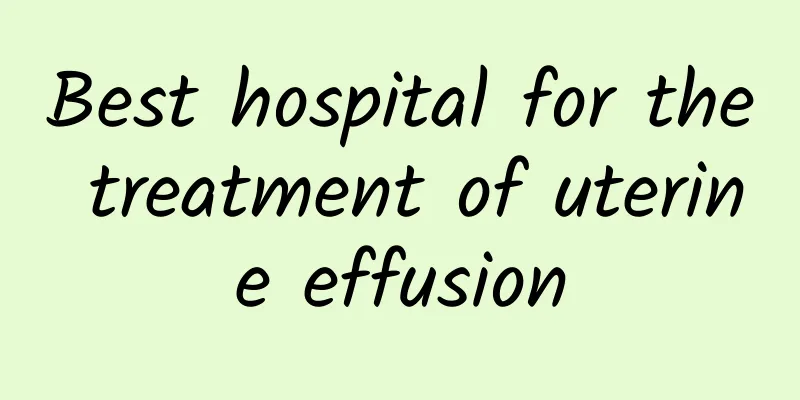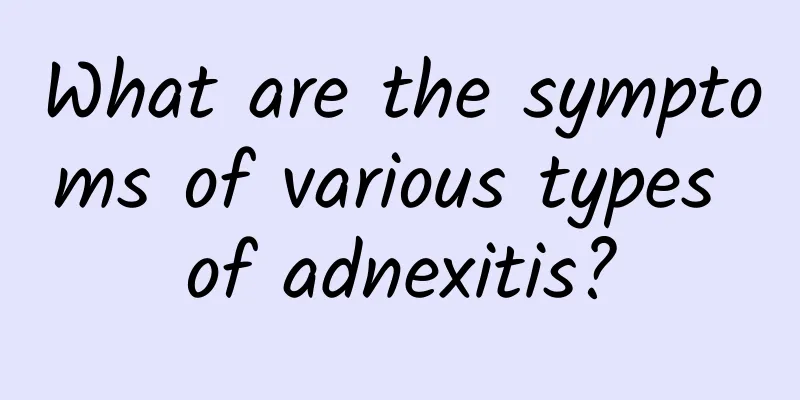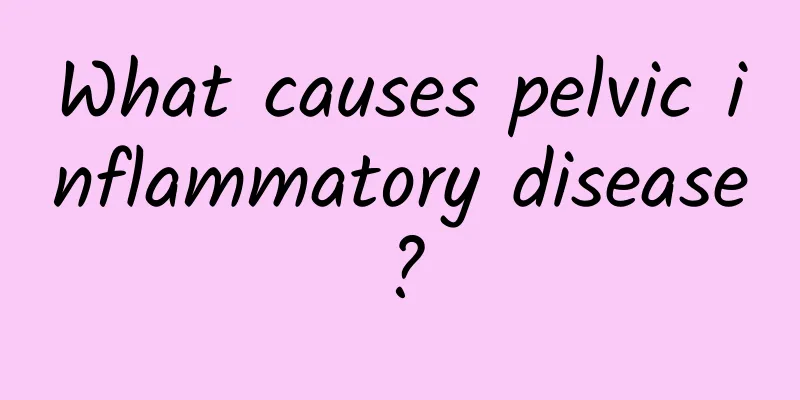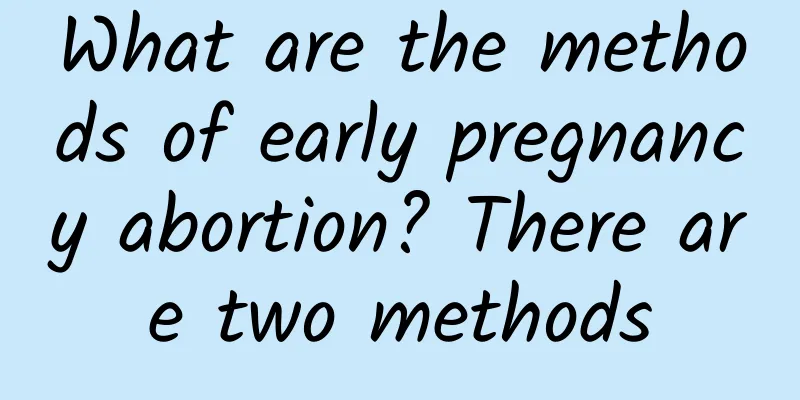Heavy menstrual bleeding and uterine fibroids can cause anemia! Must supplement folic acid, iron, and vitamin C for balanced nutrition
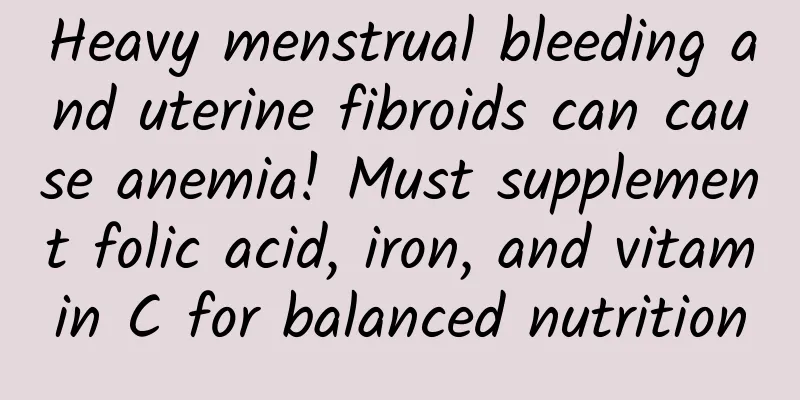
|
Women who tend to have pale faces, frequent dizziness, and cold hands and feet may be careful of signs of anemia. Even many women with uterine fibroids have heavy menstrual bleeding, and long-term neglect may lead to anemia. As the saying goes, "6 out of 10 women suffer from anemia", but do you know which type of anemia you might have? Which foods can help prevent anemia? Let’s hear what the nutritionist has to say. Nutritional anemia can be divided into: iron deficiency anemia, copper deficiency anemia, zinc deficiency anemia We often hear people say that they are anemic. In fact, there is more than one type of anemia. Nutritional anemia, which is easily overlooked and caused by lack of protein, B vitamins, folic acid, iron, vitamin C and other nutrients, may seriously threaten our physical and mental health if left untreated for a long time. Jiang Qiuyue, director of the Nutrition Department of Wuzhilin New Hospital, said that nutritional anemia caused by nutrient deficiency can be divided into iron deficiency anemia, megaloblastic anemia, malnutrition anemia (insufficient protein and calorie intake) and copper and zinc deficiency anemia. Except for hereditary hemolytic anemia caused by gene defects (such as sickle cell anemia and thalassemia), most nutritional anemias can be improved through diet. Strictly speaking, elderly people who have been vegetarians for a long time are prone to vitamin B12 deficiency and belong to the high-risk group for anemia. 【Understand the 6 major types of anemia】: 1. Nutritional anemia: Generally speaking, nutritional anemia is usually caused by a lack of protein, B vitamins, folic acid, vitamin C, and minerals such as iron, copper, and zinc. 2. Iron deficiency anemia: According to statistics, among anemia patients in Taiwan, up to 60% suffer from iron deficiency anemia. Insufficient iron intake, poor absorption or loss will lead to insufficient hemoglobin production, causing iron deficiency anemia. 3. Hypochromic-microcytic anemia: Lack of iron and vitamin B6 may reduce hemoglobin synthesis, causing red blood cells to become smaller and lighter in color. 4. Megaloblastic anemia: Lack of folic acid and vitamin B12 can easily lead to it. 5. Anemia caused by copper and zinc deficiency: It does not occur often and is more likely to occur in people with long-term intestinal malabsorption. 6. Hemolytic anemia: It mostly occurs in patients with favism. It is genetically inherited and not a nutritional anemia. In addition, lack of vitamin E may also cause hemolytic anemia, but it rarely occurs in adults because most edible oils contain vitamin E, and many foods also contain vitamin E, such as nuts, egg yolks, etc. The vitamin E level in the blood will be lower, which mostly occurs in premature babies. Excessive dieting and uterine fibroids patients with heavy menstrual blood flow may cause anemia There are hundreds of conditions that can cause anemia. Common diarrhea and gastroenteritis can also affect the intestinal absorption of iron. Diseases such as hemorrhoids, tumors, or chronic peptic ulcers can lead to chronic blood loss and increase iron loss, which can cause anemia. In addition, women with uterine fibroids are prone to heavy menstrual bleeding and anemia. In addition, we often encounter women who are losing weight and who suffer from nutritional anemia due to excessive dieting and insufficient protein and calorie intake. Therefore, no matter what, a balanced diet with adequate intake of protein, vitamins, and minerals can avoid anemia caused by nutritional deficiencies. If the anemia is severe and cannot be improved by dietary changes, doctors usually recommend surgery. Director Jiang Qiuyue pointed out that whether anemia has obvious symptoms will vary from person to person. Generally speaking, mild anemia often does not have obvious symptoms, while more severe anemia will cause dizziness, headache, memory loss, pale complexion, fatigue, decreased physical strength, easy breathlessness, palpitations, etc. To prevent nutritional anemia, six types of food should be consumed in a balanced manner To prevent nutritional anemia, you must consume enough nutrients such as protein, calories, iron, vitamin C, vitamin B6, B12, and folic acid. Therefore, we should pay attention to the balanced intake of six major food categories on a daily basis, including: staple foods, beans, fish, eggs, meat, vegetables, fruits, milk, and oils. These foods are rich in nutrients such as carbohydrates, proteins, oils, vitamins, minerals, etc. that our body needs. The production of blood cells in the body requires balanced nutrients to work together for production and function. Therefore, the problem of anemia cannot be cured by simply supplementing iron-containing foods. A balanced diet that provides a full range of nutrients is the best way to prevent nutritional anemia. Long-term vegetarians should take in enough soy products and nuts to avoid protein and iron deficiency. It is more important to note that for people who eat a vegan diet for a long time, their only source of protein is soy products, so they need to consume sufficient soy products and nuts and seeds every day to avoid protein and iron deficiencies. Lacto-ovo vegetarians have a more balanced diet than vegans and may have a lower risk of vitamin B12 deficiency. High-iron foods include red meat (beef, lamb, pork), eggs, soybeans, vegetables such as black fungus and spinach, etc., and staple foods such as brown rice, oatmeal, and nuts and seeds such as almonds, sesame seeds, peanuts, cashews, etc., which are all good sources of iron. 【Health care methods to prevent anemia】: Director Jiang Qiuyue said that in order to prevent anemia, in addition to iron supplements and B vitamins, the following health care methods should be taken into consideration: ★Don’t be picky about food, and try to have a balanced diet. ★Avoid excessive intake of tea and coffee. Avoid drinking tea or coffee while eating, as the tannin, oxalic acid and phytic acid they contain can easily combine with iron and hinder intestinal absorption. It is recommended to drink tea or coffee one hour after a meal. In addition, vitamin C can promote the absorption of iron. If you drink a moderate amount of fresh fruit juice while eating, it will help promote iron absorption. ★Prevention and treatment of other diseases: treatment of diseases as mentioned above. ★Vegan people need to take nutrient supplements appropriately. The majority of vegetarians are elderly people. Those who strictly follow a vegetarian diet can eat cereal foods and brewer's yeast that are fortified with B vitamins (including vitamin B12), or they can take vitamin B12 supplements as directed by a doctor. |
Recommend
Shufei chicken breast is low in fat and the fastest way to lose weight? Nutritionist: Long-term consumption may lead to constipation, hypoglycemia and other 5 major problems
Office workers who want to gain muscle and lose f...
Lose weight and get rid of fatty liver! ? Nutritionist: 1 calorie ≠ 1 calorie
Is calorie control all you need to lose weight? X...
What are the common problems of cervical erosion in women? Five things to pay attention to when preparing for pregnancy with cervical erosion
Cervical erosion actually refers to the red and r...
Some brief introduction to chronic cervicitis
Many female friends are familiar with chronic cer...
Bacterial vaginosis check-up
How to check for bacterial vaginosis? Gram staini...
Does bacterial vaginosis affect pregnancy?
Bacterial vaginitis is a relatively common diseas...
How long does bleeding last after medication? Find out early
If a woman chooses medical abortion, the bleeding...
Principles to be followed in treating menopause
For every woman, the transition from adolescence ...
You can also lose weight by sitting down. Female doctor's 3 private tricks to lose weight and look beautiful
Correct posture is the foundation for a beautiful...
How long is the best time to have an abortion during pregnancy
Nowadays, many young people pursue pleasure and t...
Can I get pregnant if I have cold uterus and dysmenorrhea and little menstrual flow?
Uterine coldness, dysmenorrhea and light menstrua...
Can vaginal examination be performed for threatened abortion?
When a pregnant woman knows that she has signs of...
Abnormal leucorrhea bleeding after pregnancy
Abnormal leucorrhea after pregnancy may be relate...
What is the recurrence of uterine fibroids? What should I do if uterine fibroids recur?
Uterine fibroids are a common reproductive system...
What are the healthy diets for dysmenorrhea?
Women experience pain in the lower abdomen and lu...
